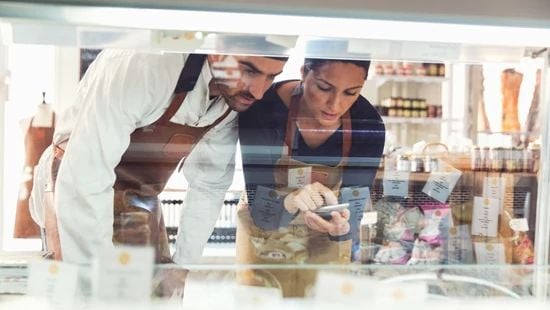Sustainable Food Safety in a Changing Labor Market

Many of our conversations about sustainability focus on natural resources, and rightfully so. We have an obligation to care for the environment in which we live, especially when that environment is growing and raising our food. However, the last several years have shown it is also crucial to consider the sustainability of the systems that we rely on to get food produced and onto our plates, including the industry’s most valuable and variable asset, people. As we continue to face the challenges of a tight labor force, we need to think boldly on how best to maintain safe, quality food.
New technologies are available to strategically help maintain high standards while reducing strain on our existing workforce. Using tools such as connected devices and digital recordkeeping can help reduce time while maintaining quality records and control of operations. In recent years, substantial work has been done to make cleaners and sanitizers not only more environmentally sustainable, but also more efficient and user-friendly. When used properly, these advances can help keep employees safe and cut down the time and effort necessary to complete their tasks. Lean on your specialists and industry experts to help you think through those Standard Operating Procedures (SOPs) and look for opportunities to streamline.
Job turnover has always been a challenge for food businesses and will likely remain. A way for us to approach this challenge is through effective training that can keep up with the speed of new hires and employees working multiple roles. Consider evaluating training systems to make sure you are not only teaching today’s dynamic teams the “how” of doing their jobs, but also important topics like food and workplace safety. Use digestible formats, such as video s, to succinctly convey information. Combine multiple topics into one training to help team members avoid the temptation to deprioritize essentials. For example, the materials on a sandwich build also should include the appropriate food safety steps like handwashing and glove use, and details on using the slicer safely.
Let’s not settle for a holding pattern while waiting for staffing numbers to increase. Instead, we should work together to create systems that are effective with smaller staff and will improve with larger numbers. This strategy will provide short- and long-term benefits and help avoid potential crises. Our people are why we are focused on food safety in the first place, so let’s design processes with them in mind.
Ecolab is proud to support GFSI, and we look forward to joining attendees at the 2022 GFSI Conference in Barcelona. Visit Ecolab.com/GFSI to learn how we collaborate with our partners for people, planet and business health.
Natalie Seymour is the Food Safety and Audit Development Manager for Ecolab. Follow her on LinkedIn @Natalie Seymour.



